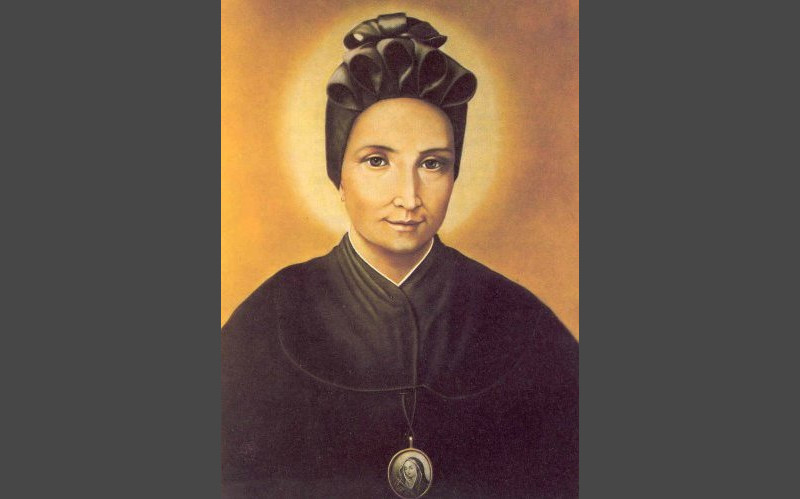
St. Magdalene of Canossa: Free to be a woman
The Life of Maddalena Gabriella Canossa: A Model of Charity and Feminine Witness in Modern Times
Talking about Magdalene, her life and her Christian legacy, always makes us shift the focus of the discourse to the theme of Charity and her life lived as a witness of love for Christ living in the weaknesses of the suffering world.
But how to talk about Magdalene today without falling into the vacuum of biographical narrative unsuited to our times? Simple, it is enough to retrace her life and choices that the image of a Woman current and in step with modernity, takes shape in her and makes her a real woman who looks at society and people with the eye of redemption and charity. This particular aspect of her full and completely given life has always struck my attention making me discover her as a model of a woman of shocking actuality.
Maddalena Gabriella was born in Verona IL March 1, 1774, to the noble family of the Marquises Canossa whose palace still faces mighty and elegant, on the Adige River. She is the second child of the Marchesi Canossa and as a “woman” she is rejected, at the time of her birth, by her own parents who were expecting a boy. This is the sad reality with which she begins her life and marks her deeply. A boy was expected in the Canossa household. It is said that her mother Teresa Szlua, disappointed that she did not give her husband, Marquis Ottavio, a son, removed her from herself exclaiming, “I would throw her into the Adige River.” From that moment on, Maddalena’s life would be all uphill, stretched in the effort to recover herself to herself, and as an apparently fragile, sensitive, undecided woman, but attentive to what place to occupy in the world, she would recover that strong spirit of a mystical woman and entrepreneur that lived in her and that time would make resolute because of that “feminine” will that never gives up even in the hardest and most humiliating trials.
Rejected because she is a woman! How many of those words or the like uttered more or less consciously by Marquise Teresa Szlua still resonate in the lives of each of us? How much still today the struggle for egalitarian emancipation is the center of heated debates and there is an intrinsic need to emphasize that it is not welcome to know that ” the coming life that will be born will be female,” igniting a cultural and religious debate that would like to justify the difference for a less
It has always struck me, in that not-too-distant past, how, several people, even eminent ones, have exalted the figure of Magdalene by describing her as a “manly woman” and have endeavored to paint her with those characteristics more typical of a man than of a woman. This has always seemed to me to be a typical straining of that macho mentality, which has often not helped to grasp the true and specific human peculiarities of the “feminine,” sometimes making it more difficult to understand the relationship between charismatic charateristics and the qualities of her being an all-round woman, peculiarities intimately united in Magdalene’s personality as in those of every woman.
“Virile Woman” is the straining and denial to which we women often have to adapt in order to afford a voice, a “beingness” that fails to take concrete form except in the self-denial of our own femininity. The resulting choice, and it was, at first for Magdalene as well, always oscillates between being and achieving, between mother and entrepreneur, between empathy and strategy, between self-respect and revenge on the other.
Magdalene does not choose, but in the courageous will of one who knows she is free, she entrusts herself to God, consecrates herself to Him, and succeeds in fully living all the dimensions of her being a woman, mother and foundress of a religious family: the “Daughters of Charity Servants of the Poor.” As she moves forward in life, she recognizes herself as a woman of care in the service of the least, both in the respect of her spiritual and vocational journey and in the convinced witness to a God who gives and does not take away, whose love will make her an extraordinary witness, a masterpiece destined to be, in time, an everlasting model of femininity.
In Christ, Magdalene decided, against everything and everyone, to become Mother of Charity and Servant of the poor and the least, thus finding her fulfillment as a woman in the world and in the Church. She, whom her parents and relatives had disdained at her birth because she was not deputed to hand down to posterity the illustrious name of the Canossa family, finds herself making it known throughout the world as a name that brings back to earth the figure of Jesus who came to redeem man. “Rich as she was….” In love with Christ, she chose him as her husband and constantly found him in the eyes of the poor man she serves and in whom she experienced love in its overwhelming fullness, a love that, as in every woman, begets and leads.
With resoluteness Magdalene thus overcame all preconceptions by recovering her identity as Woman and Mother not with a manly courage, as was intended, but a feminine one, a courage charged with understanding and tenderness.
Clorinda Pia Di Pietro
Laica Canossiana
